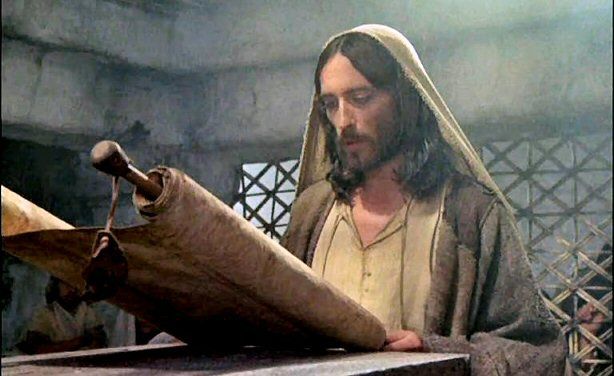By: Brian G. Chilton | April 10, 2022
Holy Week is upon us! Holy Week commemorates the last week of Jesus on earth before his crucifixion, burial, and resurrection. It begins with Palm Sunday and ends with Easter Sunday. The Passion narratives of the Gospels tell us much about the mindset of Jesus and the earliest disciples. They are full of emotion, intrigue, drama, and spiritual symbolism. However, did you know that there is a connection between messianic prophecy and Holy Week? Much of what occurred had been prophesied. Long before Jesus was ever born on earth, God spoke to prophets of old and told them of the things that the Messiah would endure, what he would accomplish, and the redemption that he would bring. This article will peer into some of the events of Holy Week and show how they fulfilled some of the prophecies written about the Messiah.
Palm Sunday: The Messiah’s Celebration
Palm Sunday remembers the time that Jesus entered Jerusalem while riding on a donkey. The Gospels note that Jesus instructs his disciples at Bethphage to find a donkey and colt for him to ride into Jerusalem (Matt. 21:1–11; Mk. 11:1–11; Lk. 19:28–40; Jn. 12:12–19). The Gospels show that the crowds cut palm branches, laid them on the ground, and shouted, “Hosanna to the Son of David; Blessed is the one who comes in the name of the Lord; Hosanna in the highest!” (Matt. 21:9).[1] Luke reports that some of the Pharisees said, “Teacher, rebuke your disciples!’ Jesus replied, ‘I tell you, if these stop speaking, the stones will cry out!’” (Lk. 19:39).
But why did Jesus ride into town on a donkey? What was the purpose behind it all? Jesus realized that this was a fulfillment of a messianic prophecy of Zechariah, who wrote, “Rejoice greatly, daughter of Zion! Shout in triumph, daughter of Jerusalem! Behold, your king is coming to you; He is righteous and endowed with salvation, humble, and mounted on a donkey, even on a colt, the foal of a donkey” (Zech. 9:9). Mark notes that Jesus not only rode into Jerusalem, but he also entered the Temple (Mk. 11:1–11). Jesus rode on an unyoked donkey, something that indicated a religious purpose. Unyoked animals were used by priests for religious purposes. By riding an unyoked animal into Jerusalem and walking into the Temple, Jesus assumed the role of the high priest. He indicated that he would provide a sacrifice that would bring ultimate peace to the world. The sacrifice would be none other than his own body! Zechariah 9:10 speaks of the Second Coming of Christ.
But what kind of salvation would he bring during his first advent? Scholars note that the term “salvation” is either a passive or reflexive term.[2] If it is passive, then the intention is that the Messiah would be delivered from the power of death.[3] If it is reflexive, then it means that the Messiah would show himself to be the Savior.[4] I would agree with Zuber in that both senses could be intended. Thus, the Messiah would reveal himself as Savior by his deliverance from the clutches of death. What a powerful prophetic allusion to the resurrection!
Maundy Thursday: The Messiah’s Betrayal
Maundy Thursday commemorates the night that Jesus was betrayed by Judas Iscariot, one of his closest disciples. Jesus knew that Judas would betray him. Perhaps Judas wanted Jesus to be a military conqueror rather than a vicarious sacrifice? John notes that Judas was a thief (Jn. 12:6). On that fateful evening, Judas met Jesus in the Garden of Gethsemane. He was accompanied by a large group who came with clubs and swords. Judas had informed the priests that whomever he kissed would be Jesus. He came up to Jesus and said, “Greetings, Rabbi!’ and kissed Him. But Jesus said to him, ‘Friend, do what you have come for.’ Then they came and laid hands on Jesus and arrested Him” (Matt. 26:49–50).
Even Jesus’s betrayal was prophesied in Scripture. Zechariah had been betrayed himself. His betrayal alluded to the one that the Messiah would experience. He writes, “If it is good in your sight, give me my wages; but if not, never mind!’ So they weighed out thirty shekels of silver as my wages. Then the Lord said to me, ‘Throw it to the potter, that magnificent price at which I was valued by them’” (Zech. 11:12–13). The people desired the false prophets over the true prophet, because of the message that they delivered. The people only gave Zechariah, the true prophet, the wage of an indentured servant—thirty pieces of silver. Thus, Zechariah not only prophesied that the Messiah would be betrayed, but he also prophesied that he would be betrayed for thirty pieces of silver.
Good Friday: The Messiah’s Sacrifice
The Gospels note the crucifixion that Jesus suffered on Good Friday.[5] At 9 am, Jesus was crucified. Darkness covered the region at noon. Jesus gave up the spirit (i.e., died) at 3 pm. Walter Kaiser notes several prophecies that Jesus fulfilled on this day.[6]
Mockery Suffered by the Messiah
- “All who see me deride me; they sneer, they shake their heads, saying, ‘Turn him over to the Lord; let Him save him; let Hime rescue him, because He delights in him” (Psa. 22:7–8).
- “I also have become a disgrace to them; when they see me, they shake their head” (Psa. 109:25).
Thirst of the Messiah
- “They gave me a bitter herb in my food, and for my thirst they gave me vinegar to drink” (Psa. 69:21).
Words from the Cross
- “My God, my God, why have You forsaken me? Far from my help are the words of my groaning” (Psa. 22:1).
Messiah’s Side is Pierced
- “And I will pour out on the house of David and on the inhabitants of Jerusalem the Spirit of grace and of pleading, so that they will look at Me whom they pierced; and they will mourn for Him, like one mourning for an only son, and they will weep bitterly over Him like the bitter weeping over a firstborn” (Zech. 12:10).
The Suffering of the Messiah
- “But He was pierced for our offenses, He was crushed for our wrongdoings; the punishment for our well-being was laid upon Him, and by His wounds we are healed” (Isa. 53:5).
Burial of the Messiah
- “And His grave was assigned with wicked men, yet He was with a rich man in His death, because He had done no violence, nor was there any deceit in His mouth” (Isa. 53:9).
Easter Sunday: The Messiah’s Victory
The Messiah’s glorious resurrection caught many off-guard. The Pharisees and Essenes believed that God would raise the righteous at the end of time. But no one anticipated an imminent resurrection of the Messiah, even if he had prophesied it himself. Yet it may surprise you to find that the OT alluded to the resurrection of the Messiah, if not outright predicted it. Consider a couple of examples.
First, David writes, “For You will not abandon my soul to Sheol; You will not allow Your Holy One to undergo decay” (Psa. 16:10). Scholars note that Psalm 16 is a miktam psalm, which most assuredly has death in mind, like its counterparts in Psalms 56–60.[7] The psalm’s association with death makes the translation of שַׁחַת (sahat) with the term “decay” more appropriate than the term “pit.” Thus, the psalmist held that the Holy One of God (i.e., Messiah) would die, but he would not remain in the grave. His body would not decay. Rather, something would happen that would cause him to return to life. We know that the Spirit of God was projecting the future resurrection of the Messiah.
Second, Isaiah 53 holds a prophecy that the Messiah would rise again. Recall in verse 9 that Isaiah noted that the Suffering Servant of יהוה[8] (i.e., the Messiah) would be “assigned a grave with the wicked, but he was with a rich man at his death” (Isa. 53:9, CSB).[9] Even still, something quite odd is reported in verse 10. Despite his death, the Lord would יַאֲרִ֣יךְ יָמִ֑ים (yaarik yamim), or “prolong his days.” But how could his life be extended? How could he “see the light of life and be satisfied” (Isa. 53:11, CSB)—that is, נַפְשׁוֹ֙ יִרְאֶ֣ה יִשְׂבָּ֔ע? The only way this would be possible is if the Suffering Servant of יהוה were to be resurrected.
Conclusion
None of the events that occurred in the last week of Jesus happened by happenstance. Rather, they were prophesied from time past. Christ’s betrayal, crucifixion, and glorious resurrection did not take יהוה by surprise. He orchestrated these events to bring about our salvation. So, as we celebrate Holy Week and Easter, may we be reminded of God’s remarkable prophetic ministry, as spoken through the Spirit to the prophets, and preserved in God’s Word. Let us be thankful on this holiest week of the year.
About the Author

Brian G. Chilton is a Ph.D. Candidate in the Theology and Apologetics program at Liberty University. He is the host of The Bellator Christi Podcast and the founder of Bellator Christi. He received his Master of Divinity in Theology from Liberty University (with high distinction); his Bachelor of Science in Religious Studies and Philosophy from Gardner-Webb University (with honors); earned a Certificate in Christian Apologetics from Biola University, and plans to purse philosophical studies in the near future. Brian is a member of the Evangelical Theological Society and the Evangelical Philosophical Society.
Brian has served in pastoral ministry for nearly 20 years and currently serves as a clinical hospice chaplain. Additionally, he serves as an editor for the Eleutheria Journal. At the prompting of the Lord, Brian established Bellator Christi Ministries in 2012. The ministry is aimed to provide readily available resources in theology, apologetics, biblical studies, and philosophy to those who want to know what Christianity teaches and why it should be believed. In 2019, Brian published his first book entitled the Layman’s Manual on Christian Apologetics. After finishing his Ph.D., Brian intends to publish more books. His areas of expertise include early NT creeds, near-death experiences, biblical reliability, the blend of divine sovereignty and human freedom, and the need for empathy.
https://www.amazon.com/Laymans-Manual-Christian-Apologetics-Essentials/dp/1532697104
Notes
[1] Unless otherwise noted, all quoted Scripture comes from the New American Standard Bible (La Habra, CA: Lockman, 2020).
[2] Micheal Rydelnik and Edwin Blum, eds, The Moody Handbook of Messianic Prophecy (Chicago, IL: Moody, 2019), 1264.
[3] Ibid.
[4] Ibid.
[5] Good Friday is called “good” because of the salvation that Jesus’s actions brought to those who believe in him. The atonement that came from Christ’s death is what made the day good and not the death of Jesus.
[6] Walter C. Kaiser, Jr., The Messiah in the Old Testament (Grand Rapids, MI: Zondervan, 1995), 238.
[7] Rydelnik and Blum, eds, Moody Handbook of Messianic Prophecy, 523.
[8] יהוה is the personal name of God, often translated as Yahweh.
[9] Scriptures marked CSB come from the Christian Standard Bible (Nashville, TN: Holman, 2020).
See also https://bellatorchristi.com/2019/04/15/messianic-prophecy-and-the-resurrection/
© 2022. BellatorChristi.com.






[…] his first advent? Scholars note that the term “salvation” is either a passive or reflexive term.[2] If it is passive, then the intention is that the Messiah would be delivered from the power of […]